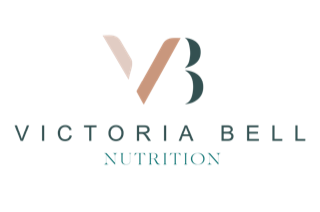How to Get Rid of Bloating
Bloating is no fun. It can interfere with what you do and how you enjoy (or don’t enjoy) life. Can you relate to the following?
You cannot sit through a day at work without being uncomfortable
You avoid eating before a big night out to fit into your clothes
Your favourite foods cause your tummy to swell
You spend most of your time feeling uncomfortable and the last thing you feel like is exercise
If so, bloating has started to interfere with the choices that you make and how you live your life.
Finding out what is causing your bloating is often not a quick fix. Over the counter and prescription medications may help in the short term, but they do not deal with the root cause. Similarly, working out your trigger foods can help you to reduce the bloating, but living with dietary restrictions longer term is also not the answer.
Gut Bacteria and Micriobiome
It helps to understand what might be causing the bloating. Often the balance of your gut bacteria or microbiome, may be involved. Most of your gut bacteria normally lives in your colon, or lower intestine. Further up in the small intestine, there should be a lot less bacteria and even less in the stomach.
Most of the bacteria is commensal, meaning that it has important jobs to do for you, including:
protecting you from invading organisms such as viruses, parasites and harmful bacteria
helping you to digest foods such as carbohydrates, including the lactose in dairy
an active role in absorbing some nutrients and synthesising vitamin B12
Your commensal bacteria especially likes to feed on carbohydrates by fermenting them. As a by-product, gas is produced which you don’t tend to notice with a balanced microbiome. Some carbohydrates are much quicker to break down, which makes them more accessible to your gut bacteria.
If you eat a lot of sugary foods and refined carbohydrates such as white flour products, bacteria can overgrow but so can yeast such as candida and the more harmful bacteria! Even an overgrowth of commensal bacteria can contribute to bloating, especially if that bacteria has travelled up into the small intestine.
Lifestyle can also affect your microbial balance. Lack of sleep, poor stress tolerance and lack of exercise can all tip the balance so you not only start to experience tummy troubles, but can become more susceptible to illness.
If you’ve seen your doctor about your symptoms and ruled out any more concerning reasons for them, working with a nutritional therapist can help you to settle your digestive system so that bloating no longer blights your daily life.
My top 10 tips for getting rid of bloating:
1. Stay hydrated by aiming for two litres a day of fluids, ideally mostly water. Tea, coffee, herbal teas, and watery soups all help towards your intake. But…
2. Keep drinks away from your meals, because large quantities of liquid dilute your stomach acid and give your body a much harder job to digest your food. Tea especially can slow digestion down, because the tannins in the tea bind to pepsin which is an enzyme you need to break down protein.
3. Slow your eating down, chew your food as much as possible which makes the most of the digestive enzymes in your saliva. If you can eat as many of your meals as possible in a relaxed environment and with less distractions, you will be priming your digestive system to do it’s job.
4. Eat 2-4 regular small meals and keep snacks to a minimum – 1-2 per day if needed rather than grazing throughout the day. The period of fasting in between meals allows something called your Migrating Motor Complex (MMC) to activate. The MMC is an automatic wave of muscle contractions throughout your intestines, which not only helps push food down, but bacteria which belongs lower down in the colon. Given the chance, bacteria can travel up into the small intestine and wreak havoc.
5. Keep a food diary and record the timing of your meals and when your bloating happens. If you tend to have lots of foods together in each meal, try having less different foods in one sitting so that you have a better chance of identifying your trigger foods.
6. Another option is to try eliminating dairy or gluten for a week and noting your symptoms throughout the week and when you reintroduce the food. Give yourself three or more days before trying the other food to eliminate and go through the same process.
7. Carbohydrate rich foods, even the healthier plant-based ones may cause bloating. Stick to complex carbohydrates such as brown rice, whole grains (if they don’t add to the bloating), sweet potato, celeriac, and wholegrain pastas. Sourdough which has already been fermented may also produce less bloating than regular wheat-based bread.
8. Keep sugary snacks and drinks to a minimum and swap where possible for protein-based snacks such as nuts, nut butter, eggs or fish. A small banana, fresh berries or an apple with nuts or nut butter is a good combination.
9. Get up every hour or so from your desk and aim to include some walking, stretching or other physical activity every day.
10. Prioritise sleep and take steps to improve your sleep quality with a calm uncluttered bedroom, turning off screens an hour before bed and avoiding sugar, caffeine and alcohol in the evenings.
There are plenty more measures you can take to work on your bloating, too many to fit into one blog! Adopting as many as possible of the above steps will get you on the right path to resolving your symptoms.
If you would like to understand how nutritional therapy can help you to resolve your bloating, feel free to contact me at info@victoriabellnutrition.co.uk.

